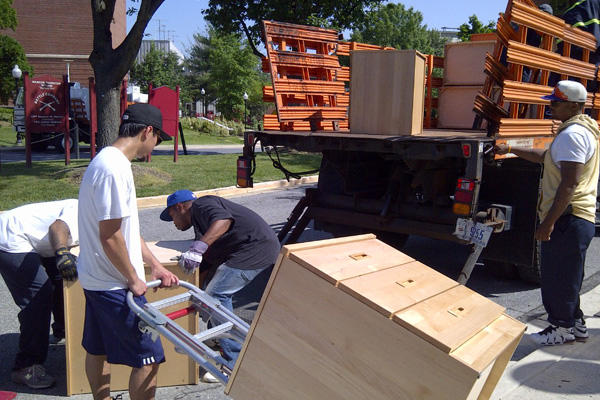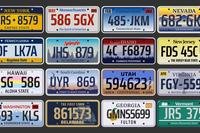Pre-move tips for handling PCS claims
During the Move
When the packers arrive to pick-up your household goods, you should be ready for them. You should have already decided what items you want the movers to pack and what items you will hand-carry to your new assignment. It is critical to lock items you plan to hand-carry in a separate room or in your car, where they are not accessible to the movers.
It is best to hand-carry small, valuable items such as jewelry, rather than to allow the movers to pack them. If you decide to have the mover pack your jewelry, ensure that each item is listed separately on the inventory. Cash, coin collections, and similar items should never be packed; you will not be paid for these items if they are lost. As mentioned above, receipts and similar proof of ownership should either be hand-carried or, at minimum, shipped separately.
When the movers have completed packing up you household goods and loading them onto the truck, they will present you with an inventory of all your belongings. You should check this document carefully to ensure that it is accurate. Each line item of the inventory will contain a description of what it is (such as a "3.0 cubic foot carton" or a "chair"). For items of furniture, preexisting damage will be listed using a code found at the top or bottom of the form (for example "sc, ch – 6,8,9" means that the legs and right side of your chair are scratched and chipped). Examine preexisting damages carefully; if the movers have exaggerated the amount of preexisting damages, you should state your disagreement directly on the inventory, in the "remarks" section directly above your signature. Do not argue with the movers, simply list your disagreement on the form.
When the movers deliver your household goods, make sure that they have delivered everything. Have a copy of the inventory handy and check off the numbers of items when the movers bring them into your new home.
If you notice that any items are missing or damaged, note this on a pink form (DD Form 1840), which the movers will give you. Do not leave this form blank if you have missing or damaged items; the government uses this form later to evaluate whether the carrier did a good job. There is no need to unpack all of your items at this time; you can note additional missing and damaged items later on the reverse side of the pink form (the reverse side is the DD Form 1840R).
After the Move
Unlike most civilian moves, where loss and damage must be noted immediately after delivery, military members have 70 days to notify the local claims office of loss and damage. This means that after your household goods have been delivered, you have 70 days to unpack them and note any loss and damage on the reverse side of the pink form (the DD Form 1840R). Thoroughly inspect your items: turn on electrical items to ensure they still operate; check your figurines to ensure they are not chipped, etc. At this point it is sufficient to state the general nature of the damage, such as "stereo – does not work." There is no need to get a repair estimate at this stage.
You must turn in the reverse side of the pink form (the DD Form 1840R) to your nearest Army claims office within 70 days of the delivery of your household goods. Failure to do so will make it impossible for the claims office to collect them from the carrier responsible for your loss. As a result, the claims office invariably will not pay you for any items that you failed to report within 70 days.
When you turn in your DD Form 1840R, the claims office will provide you with forms and information on filing your claim. At this point you will need to get repair estimates and other documentation to substantiate the amount of your loss. You have two years from the date of the original delivery (not from the date you turned in your DD Form 1840R) to file a claim. If you are late in filing your claim the government will not be able to pay you anything.
The claims system is designed to help you. However, you also have a responsibility to protect yourself. If you keep proper records of what you own and promptly document damages that occur during the move, you should be able to recover the fair value of your loss. If you have questions, your local transportation office and local claims office can provide the answers.













